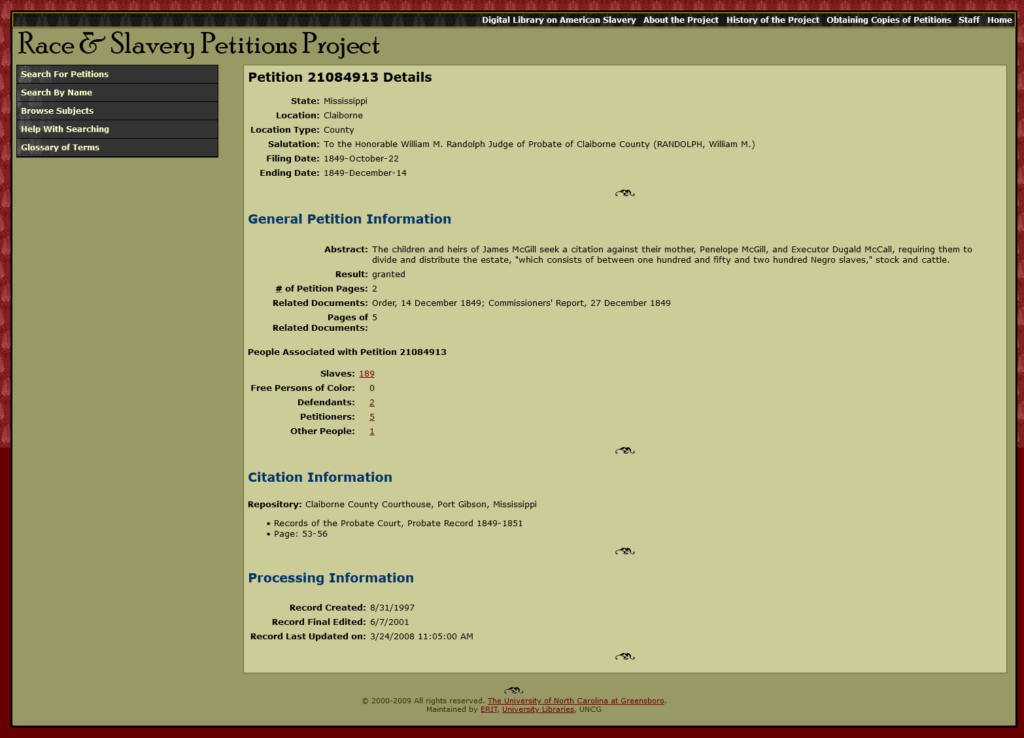https://library.uncg.edu/slavery/petitions/details.aspx?pid=9207Genealogists
https://library.uncg.edu/slavery/petitions/details.aspx?pid=9207The genealogical information provided by the Race and Slavery Petitions Project is based on information found in court documents and legislative petitions pertaining to civil cases filed by slave owners, slaves, and free people of color in the fifteen states of the slaveholding South between the end of the American Revolution and the end of the Civil War. The types of documents thus used are varied; they range from plaintiffs’ complaints to local and regional courts, defendants’ answers to the complaints, witnesses’ depositions, judges’ rulings, and documents, such as wills, inventories, and property assessments, among others, that were offered by each side to support its case. The accuracy of the information found on this website is therefore directly related to the accuracy of the information found in the documents thus utilized. The documents were prepared by attorneys and court personnel, who wrote down what the plaintiffs, the defendants, the witnesses, and the local authorities told them. Similarly scribes were used to take down the last wishes of a person on his or her deathbed, or to document on-site inventory taking or estate valuation proceedings by court-appointed commissioners. As is sometimes the case, the person telling the story or dictating it may have had imperfect knowledge of family relations; his or her recollection may have been distorted by the many re-tellings through family or local lore, the passing of time, the incorrect interpretation of what was told, or even a personal “agenda” in the case at hand. In addition, scribes may have taken down the information incorrectly, corrected it at a later date to fit contradictory statements, or omitted critical pieces of the story through inattention. The information found in these court and legislative documents are uniquely valuable in that they fill in the gaps created by the limitations or, in the case of slaves, the absence of civil records; at the same time it is vulnerable to the distortion that can be introduced any time someone tells his or her story, or the story of relatives and neighbors, friends or foes. We therefore caution the user to view the information provided by this website as another piece in the family history puzzle, or perhaps, when the user has not yet found any piece at all, its starting point; in some cases it will corroborate already known information, in others it will point to new directions, and yet in others it will suggest the need to untangle conflicting information.
Like the following:

